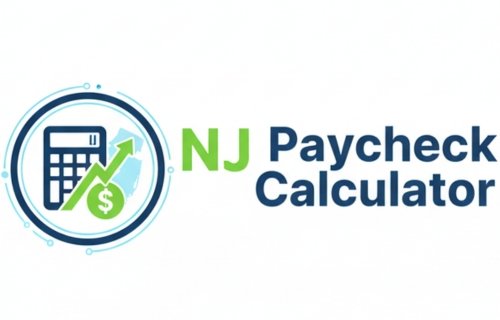
If you live or work in New Jersey, you’ve probably noticed “NJ state income tax” on your pay stub. That amount is based on the New Jersey paycheck withholding rate, which decides how much of your wages goes toward state taxes each pay period.
Let’s break down how New Jersey’s withholding rates work in 2025, how they’re calculated, and what that means for your take-home pay.
New Jersey Withholding Rates for 2025
For 2025, New Jersey uses a progressive income tax system with rates ranging from 1.4% to 10.75%.
Employers rely on the NJ Withholding Tables (Form NJ-WT) to determine the right amount to withhold, based on your pay, filing status, and allowances listed on your Form NJ-W4.
| Taxable Income (Single Filers) | Tax Rate |
|---|---|
| $0 – $20,000 | 1.4% |
| $20,001 – $35,000 | 1.75% |
| $35,001 – $40,000 | 3.5% |
| $40,001 – $75,000 | 5.525% |
| $75,001 – $500,000 | 6.37% |
| $500,001 – $1,000,000 | 8.97% |
| Over $1,000,000 | 10.75% |
(Source: New Jersey Division of Taxation, NJ-WT 2025)
Tip: You pay higher rates only on income that falls into each bracket, not your entire earnings.
How New Jersey Withholding Works on a Paycheck
Each pay period, your employer calculates your state tax withholding using these inputs:
- Gross pay before deductions
- Filing status (single, married, etc.)
- Allowances on your NJ-W4 form
- Pay frequency (weekly, bi-weekly, monthly)
This system ensures you pay roughly the right amount of state income tax across the year — not too much, not too little.
Example: How Much Is Withheld from a Paycheck in New Jersey
Here’s an example of state income tax withholding for an employee earning $75,000 annually and paid biweekly (26 paychecks).
| Item | Amount |
|---|---|
| Annual salary | $75,000 |
| Gross pay per period | $2,884.62 |
| Estimated NJ withholding (≈ 5.5%) | $158–$165 |
| Federal income tax (average) | $300–$400 |
| FICA (Social Security + Medicare) | $220 |
| Net pay after tax | ≈ $2,350 |
These numbers are estimates using New Jersey’s 2025 brackets and a single filer status.
Supplemental and Bonus Withholding Rates
New Jersey does not have a fixed “bonus tax rate.”
Employers typically add bonuses to regular wages and calculate withholding from total taxable pay. However, for large supplemental payments, the rate can reach up to 11.8% depending on income level.
How Your NJ-W4 Affects Withholding
Your NJ-W4 form tells your employer how much to withhold from your pay.
- More allowances = less tax withheld (larger paycheck).
- Fewer allowances = more tax withheld (smaller paycheck).
- You can also request an additional dollar amount withheld each pay period.
Nonresidents and Commuters
If you work in New Jersey but live in another state, your employer still withholds NJ income tax unless a reciprocity agreement applies.
- Pennsylvania residents: File Form NJ-165 to claim exemption from NJ withholding.
- New York or Delaware residents: Wages earned in NJ remain subject to NJ income tax.
Employers must keep a copy of any exemption certificate for their payroll records.
Common Mistakes in Understanding Withholding Rates
- Assuming the top rate applies to all your income.
- Forgetting to update your NJ-W4 after marriage or job changes.
- Using federal W-4 data for NJ calculations (they differ).
- Ignoring pay frequency — weekly vs. monthly can change withholding totals.
Review your first pay stub of the year and verify that the correct state tax rate and allowances were applied.
“Use the New Jersey Payroll Tax Calculator to calculate your exact withholding rate.”
“Check your income bracket with the New Jersey Income Tax Bracket Calculator to find the correct rate.”
“Learn how NJ-W4 Affects Your Withholding and ensures accurate paycheck deductions.”
“Estimate your total take-home pay with the New Jersey Gross-to-Net Paycheck Calculator.”
“See how Federal Withholding Impacts Your Paycheck along with New Jersey state taxes.”
“Find out What Deductions Come Out of a New Jersey Paycheck beyond income withholding.”
Frequently Asked Questions
What percentage does New Jersey take from my paycheck?
Between 1.4% and 10.75%, depending on income and filing status.
Does NJ have local income taxes?
No. Only the state tax applies; there are no county or city income taxes.
Do bonuses have a different withholding rate?
They’re usually taxed using your current NJ rate; large bonuses may be withheld up to 11.8%.
How can I check my NJ withholding?
Use state rate tables or online calculators for quick estimates.
What if too much NJ tax was withheld?
You’ll receive a refund after filing your state return.
Juanita is the creator behind njpaycheckcalculator.org, dedicated to providing accurate and easy-to-use paycheck calculation tools for New Jersey residents. With a strong focus on clarity and reliability, she helps users understand their paychecks and tax deductions with confidence. Juanita is passionate about simplifying complex financial calculations, empowering users to make informed decisions about their income and budgeting.
